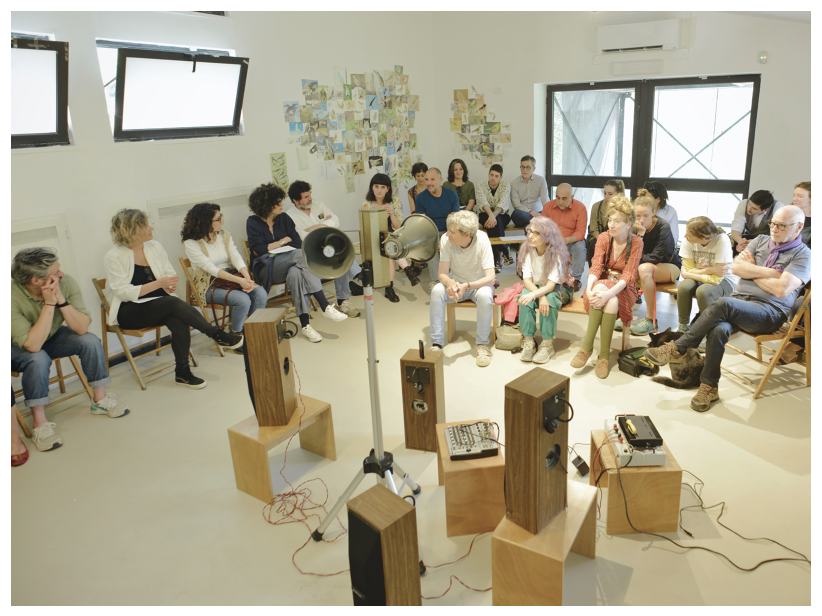As part of one of my Ph.D. research exchange trips, I was invited by the Italian Center for Artistic and Nature Research
L'Aquila Reale outside Rome to be part of an art residency to continue researching and collecting material on one of my case studies: Tiburtina in Rome. I was interested in focusing on the residency with the frame-idea of 'listening and letting be listened to,' working with the community of L'Aquila Reale. Through sound recordings of previous Roman urbanscapes and a collection of oceans sound archives, I was interested in providing a space for collective listening through sound. I designed a listening session called 'Oceanic Memory,' highlighting the idea of collective listening not only to actively listen to the sound fragments I was exploring and collecting part of the residency but also ‘to tune into the listening of the other’, to actively listen to the person who is close at the moment of listening. These collective active listening exercises was part of my juxtapositions between art and anthropology, where my initial questions were: Who do we listen to? (Ndikung, 2021) And Who do we let be listened to? Inspired by the reflections of the anthropologist Bruno Latour on the social, 'How do we listen socially' (Latour, 2007).
The audio shared in the collective listening was a post-production recording taken from my sound archive of oceans and seas (see
sonic archives). I was interested in using the poetics of the ocean and sea soundtracks as compositional and theoretical narratives of colonial and contemporary journeys through the Mediterranean, the English Channel and the Pacific Ocean. Rather than bringing the colonial sound archive to begin discussions around the European border regime, I wanted to initiate these reflections through the environmental and underwater sounds of these seascape, leaving aside the propaganda voice narration heard in colonial archives audios, instead amplifying the texture and rhythms that nature and in this case seawater has. I was interested in exploring how, through listening to tracks from the Mediterranean and North Sea, it was possible to provide a gentle, poetic and reflective environment to talk about migration in Italy today.
